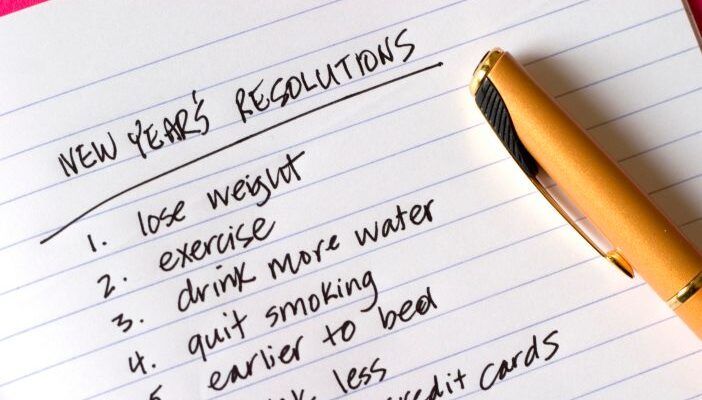Intense workouts twice a day. A gallon of water consumed. Journal pages filled, alcohol avoided and vegetables for every meal.
Every year, Jan. 1 rolls around and people scramble to declare their resolution, the new activity or habit that will dramatically change their life. In fact, it is difficult to get through the first month of the year without getting asked on a few occasions what it is you are doing to improve yourself. This buzz creates pressure to attempt every change possible, and even a shame if one decides to opt out and live their life as it was the week prior.
This year, I noticed that the pressure was more heightened than in years past. With every scroll of TikTok, I saw a new influencer posting about their new challenges. Dry January entails even the biggest party-goers taking a month off booze, while 75 Hard consists of a workout routine, diet, reading and progress pictures for 75 days straight. While these TikTok challenges make for interesting content, I tend to believe that New Year’s Resolutions are not sustainable in the long run.
One thing I have learned is that the truest, most constant thing in the world is change. Each and every day, change is inevitable, no matter how much we fear it or try to run from it. Without warning, one’s life can be flipped on its head, a new challenge arising or a newfound passion evoked.
So, why do we pick Jan. 1 as the day to make our lives better? Realistically, your life could change more on a random Friday in September or in the middle of your walk to class. Life isn’t on a schedule, it isn’t going to change just because the calendar does. So, why do we expect ourselves to change on a schedule?
My problem with New Year’s resolutions is that they suggest that self-change is based on external factors and timing. If we have a goal, it is an amazing thing to take the steps to change it. But this should happen at one’s own time, when they feel most inspired. If the change did not come from the heart, but rather out of necessity to fill a quota, it likely will feel like a chore. In fact, there is a chance the person becomes resentful of the requirement. Then, a few weeks later burn-out can hit and suddenly the habits are dropped. I think a change only truly works when you want it to.
The nature of resolutions is also very all or nothing when, realistically, making small changes and improvements every day is more sustainable. I don’t think it is realistic to completely give up or alter a part of your everyday life. If you eat dessert every day, ditching it all together might feel harsh. Instead, changing to every other day may be more achievable. I’ve often had the resolution to be more positive. I’ve realized that for me, this cannot mean never being negative again. Rather, it may present as finding one spot in every day to find the good. It’s far better to be a little better every day, as opposed to attempting to completely change in one day.
So, treat yourself gently. And if you find a place that you would like to work on, do it. Don’t fall victim to the resolution culture, rather focus on what really matters: you. There is no need to alter yourself because of a calendar date, and no need to put a new you off until the New Year!


Leave a Reply